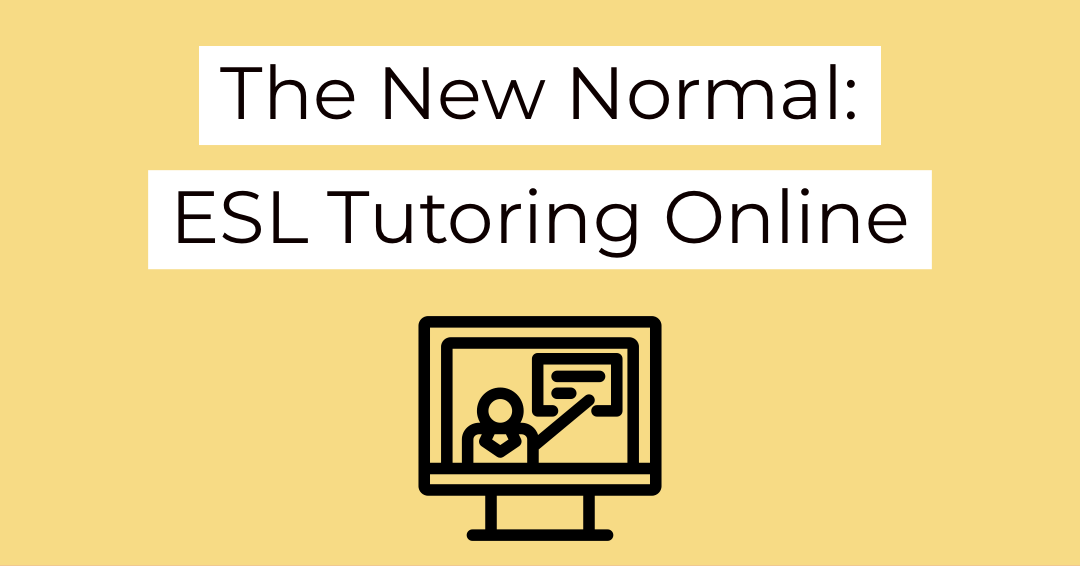
The hardest part of the season is upon us, with the end of the semester coming up and students struggling to get make it to the end. As we continue to make adjustments to our teaching to fit into distance learning, our students might be thinking about how they did not sign up for an online class. Certain policies have been put in place to limit students to 30 minutes of instruction per class per day, when reality they might need a couple hours per class per day. The question you might be asking is how you teach someone a condensed lesson from a distance when they might not be computer literate.
Digital Guides
An important tip I have for transitioning to distance learning is developing a step by step video guide on how to use video conference applications available to you. Whether you are using Zoom, Google Meet, Discord, Skype, or something else, you have access to many YouTube tutorials on how to properly use these. Navigating new software can be confusing. It might even seem like a headache at first, but once you get the hang of it you will be able to make accessible distance learning lessons for your classroom.
With most colleges in Minnesota are using Zoom to continue to educate students from a social distance aspect. Unfortunately, not all of us are tech-friendly people, Zoom has some great resources out there; when it comes to easing the frustrations of using new technology. One of the suggestions when using Zoom or any other form of online teaching is to password protect your meetings. This helps keep your students safe from cyberbullying and discrimination from outside sources. Many Zoom classrooms have been Zoombombed and racially motivated hate has been spewed in the lecture from an outside group. Be sure to take precautions to protect your students and yourself.
A difficult part about a lot of this is we need to remember that many of us have always had access to computers and the internet in our lives. While some of these students might have only had access to educational technology for the first time in their lives in the past few years.
When making these guides for students and families:
- Keep the instructions simple
- Use audio whenever possible
- Record your screen
- Add subtitles when necessary
Family Resources
Now, what do you do when a student does not have access to the internet or have the ability to pay for reliable internet? With social distancing in place and most places closed it makes it a lot more complicated. Do not panic help is out there, numerous companies have partnered together to help students and families struggling with internet access and computer access. While there are many companies out there helping, the easiest way to find out who is helping would be through a list of numerous resources made readily available. Another way to receive assistance is by simply asking the student’s school. A lot of schools have developed ways to provide internet and technology access for their students.
Educating someone is about more than what happens in the classroom. Being the person that can help get solutions to questions, and find where to turn to for help increases the rapport that makes an excellent educator. Especially when students are going to be turning to you in the first place when they don’t understand something and can’t complete assignments. Most of the time it is not until they receive a failing grade or incomplete on their assignment that they eventually reach out. Understandably, a lot of this can be very frustrating for both parties, but just remember that this will pass at some point. Some ways to alleviate frustration can be in the ways our lessons are presented. While everyone learns at a different pace and are at various levels when it comes to learning a language, we need to be flexible with their understanding of a new learning environment.
Educator Resources
Depending on your level of experience as an educator you might find some of this information more useful than others. I am fairly new to teaching, or tutoring in that effect. The one thing that has made my experience more enjoyable is being able to build a greater community and building that relationship with outer mentors and educators. Building a community base will help you as an educator because it allows us to share ideas and share what is working amongst our students. There are multiple resources available in online educator communities.
They can be found through:
- Personal blogs
- Support groups on Facebook
- Google Hangouts
- Expert blogs
- Forums directed at teachers by teachers
One of my mentors had shared a post about what are we supposed to do for students struggling with online learning and have developmental educational issues. It got me thinking about how we have students struggling, whether it be developmentally, emotionally, or linguistically. We know those students very well and a lot of these resources can guide you as an educator through what steps to take and what options are out there. In my opinion, one of the greatest resources we have as an educator is other educators, reaching out to these individuals, and seeing what is working for them is one of the greatest resources we have.
University Student Tips
When it comes to students that are struggling in general, they are going to need a lot more face-to-face interactions. Unfortunately, with COVID-19 this has limited typical face-to-face interaction and we are attempting to help our students through digital face-to-face meetings on the previously mentioned video conferencing applications.
Some tutoring services are limiting students to 30 minutes a day per class. If we are having a student that was working before this with 3 to 4 hours of help each day how can we expect them to succeed with less help? Setting up the student with the correct way to study online and getting the help they need is going to be one of the few ways the students will succeed. This is strictly just my opinion.
When creating your weekly lesson plans it is suggested that you create these like you would in a classroom setting. Turn on a webcam with your lesson plan behind you so your students can follow along. This small gesture attempts to give each student some normalcy in their learning experience. It also gives them a chance to go back and view it again later. With some students possibly being essential workers, their schedules could have been flip flopped at all hours of the night and day. They may also have kids at home, on top of their work obligations. who need their help with schoolwork.
Tips for Staying on Task
While a lot of this can be completely subjective, it might work with someone’s students and might not work with others. Everyone learns at a different pace and through different means. Some of the best ways, in my opinion, to get a student to stay on track are:
- Making homework due every few days, but allow yourself to be fluid when it comes to turn-in dates. I recently had a conversation with a fellow educator that his student’s parents were laid off and still have not been approved for unemployment. With this child being the sole income, he is working 50 hours a week currently to provide for his family, while continuing to attend class. We have to consider unique situations like this and be flexible with our students.
- When a student does fall behind allow them to catch-up within reason. There might be numerous aggravating factors out there that are causing them more of a heartache. Recent studies show the use of the helpline for suicide prevention has increased exponentially in the past month. By allowing your students to continue to succeed, you might be able to keep them on the right path.
- When a student misses an exam that cannot be reopened, allow them the chance to write a paper about the information that would have been covered on the exam. Even before COVID-19 had hit us, a lot of us were not amazing test takers. I know I sure wasn’t, test anxiety hit me every time.
- While individual extra credit might feel like we are just trying to push students through, it also helps decrease the dropout rate of courses. Depending on the student you are working with some of these might be a collectivism culture so the family comes first then schoolwork. This is something that should be taken into account when it comes to building that rapport with students. A student that feels like they matter in a classroom will always succeed.
Above all else, take time for self-care at some point in all this. A burnt-out educator does not help anyone. Just remember to be patient at all costs.
To keep updated with resources and distance learning tips follow us on Instagram and Twitter.



